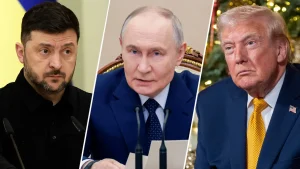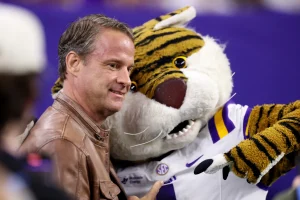World Leaders Unite in Condemning Manchester Arena Attack
International Outrage Erupts Following Deadly Concert Bombing
The world watched in horror as news spread of a devastating terrorist attack at Manchester Arena during an Ariana Grande concert on Monday evening. What should have been a night of music and celebration for thousands of young fans instead became a scene of chaos and tragedy when a suicide bomber detonated an explosive device in the venue’s foyer as concertgoers were leaving. The attack claimed 22 lives and left dozens more injured, many of them children and teenagers. In the aftermath, a chorus of condemnation has risen from world leaders, local residents, and the global community, with words like “appalled,” “horrified,” and “sickening” dominating the discourse.
British Prime Minister Theresa May delivered a powerful statement outside 10 Downing Street, her voice steady but laced with unmistakable anger. “This was a callous terrorist attack,” she declared, “an attack that targeted some of the youngest people in our society with cold calculation.” May, who immediately suspended her election campaign and chaired an emergency COBRA meeting, emphasized that the attack stood out for its “appalling, sickening cowardice” in deliberately targeting innocent, defenseless young people. Her sentiments were echoed across the political spectrum in Britain, with Labour leader Jeremy Corbyn expressing profound shock and offering condolences to families who had “suffered the most devastating loss.” The rare display of political unity underscored the gravity of an attack that struck at the heart of everyday life in Britain.
Global Solidarity Amid National Mourning
The international response was swift and unequivocal, with leaders around the world reaching out to express solidarity with Manchester and the United Kingdom. U.S. President Donald Trump, speaking from Jerusalem during his first international trip in office, condemned the perpetrators as “evil losers” and offered America’s “absolute solidarity” with the British people. German Chancellor Angela Merkel expressed her “sorrow and horror,” while Canadian Prime Minister Justin Trudeau said Canadians were “shocked by the news of the horrific attack.” From Paris to Tokyo, from Moscow to Canberra, the message was consistent: terrorism that targets children represents an attack on humanity itself. French President Emmanuel Macron personally visited the British Embassy in Paris to sign the book of condolence, a poignant gesture from a nation all too familiar with the pain of terrorist attacks on its soil.
The Queen, a figure rarely given to public expressions of emotion, released a statement conveying her “deepest sympathy” to all affected, particularly highlighting her admiration for the emergency services and the people of Manchester who had responded with “humanity and compassion to this act of barbarity.” Her words reflected the dual nature of the public response—grief for the victims coupled with pride in the community’s resilience. Throughout Manchester, that resilience manifested in countless acts of kindness: taxi drivers offering free rides to stranded concertgoers, residents opening their homes to those unable to return to their hotels, restaurants providing free meals, and thousands lining up to donate blood. Manchester City Council leader Sir Richard Leese captured the sentiment precisely: “We will not allow hate to divide us. Manchester stands together.”
Manchester’s Spirit: A Community Responds to Tragedy
The attack struck at Manchester’s identity as a vibrant, multicultural hub known for its influential music scene and passionate community spirit. The very arena where the bombing occurred had long been a symbol of the city’s cultural prominence, hosting everything from sporting events to concerts by the world’s biggest artists. In the hours and days following the attack, Manchester’s residents demonstrated why their city has earned a reputation for resilience and solidarity. Interfaith gatherings sprang up across the city, with religious leaders from Muslim, Christian, Jewish, Hindu, and Sikh communities standing shoulder-to-shoulder in condemnation of the violence. At a public vigil in Albert Square, thousands gathered despite the rain, holding handmade signs with messages like “Love Trumps Hate” and “Manchester Stands United.”
The response from ordinary citizens proved as powerful as the official statements from political leaders. Manchester taxi driver Sam Arshad, who organized free rides for those affected, told reporters, “This is our city. These are our people. Religion, race, none of that matters at a time like this.” Local hotels took in unaccompanied children and helped reunite them with their parents. Restaurants near the arena stayed open through the night, offering food and shelter. Social media campaigns like #RoomForManchester connected those stranded with people offering accommodations. Paula Robinson, dubbed the “Angel of Manchester,” personally guided 50 teenagers to safety and stayed with them until their parents arrived. “We’re Manchester,” explained resident Dave Saunders, who opened his home to three teenagers. “That’s what we do here. We look after our own and we look after those who need help.”
Security Concerns and the Path Forward
The Manchester bombing has inevitably raised questions about security at public venues and the challenges of preventing “soft target” attacks. Security experts noted that the bomber strategically positioned himself outside the arena’s security perimeter, targeting people as they exited the concert rather than attempting to breach the venue itself. This tactic has prompted venues worldwide to reevaluate their security protocols, with many extending their security zones and increasing surveillance of surrounding areas. Britain raised its terror threat level to “critical”—the highest possible level—indicating that another attack may be imminent, and deployed soldiers to key locations throughout the country under Operation Temperer.
As Manchester begins the painful process of healing, the attack has sparked renewed international commitment to counter-terrorism cooperation. Intelligence sharing between allies has intensified, with particular focus on preventing the radicalization of young people within Western societies. World leaders at the G7 summit in Sicily dedicated significant time to discussing counter-terrorism strategies, while NATO members reaffirmed their commitment to information sharing and joint security initiatives. Yet amid the security discussions, the most powerful message continues to come from Manchester itself. At a memorial service attended by representatives of all faiths, Bishop of Manchester David Walker offered words that captured the city’s defiant spirit: “The people of Manchester will remember the victims forever and will hold them in our hearts. We will rebuild, we will recover, and we will not let hate win.” As the city’s iconic worker bee symbol appeared on buildings, tattoo parlors, and social media profiles worldwide, Manchester’s response to terror became not just a local story but a global lesson in community resilience in the face of unimaginable tragedy.







